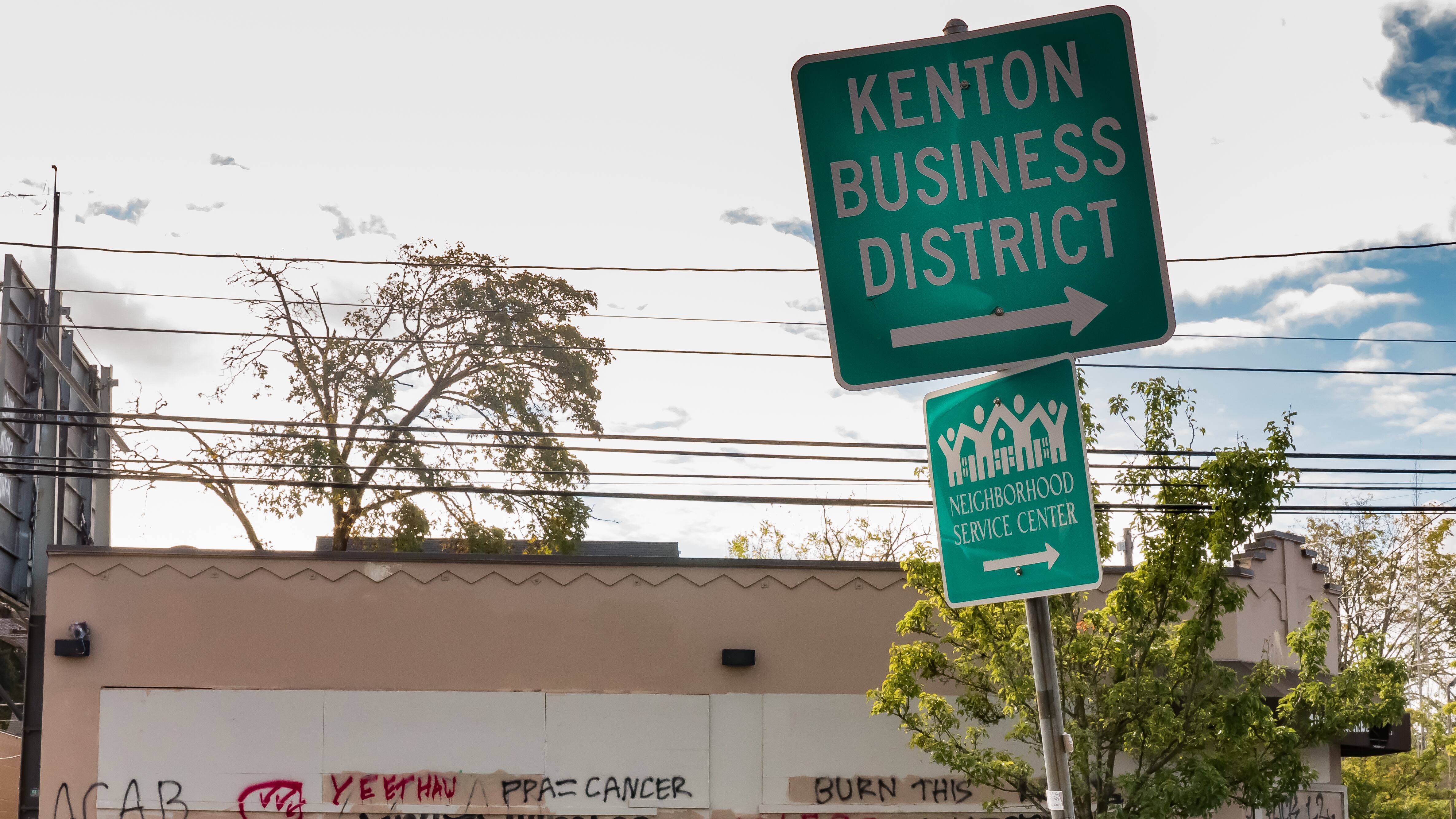A Beaverton woman accused of setting fire to the Portland Police Association headquarters last month now faces a federal arson charge that carries a mandatory minimum sentence of five years in prison if convicted.
A federal grand jury on May 4 indicted 19-year-old Alma Raven-Guido on one count of arson for allegedly setting the doorway of the police union hall ablaze on April 13. The FBI arrested her at her residence in Beaverton on May 5.
On Thursday, Raven-Guido appeared before a federal judge. She pleaded not guilty and was released pending trial.
In court documents, federal prosecutors argue that they have jurisdiction because the police’s labor union building “was used in interstate commerce and in activity affecting interstate commerce.”
The decision to prosecute the case federally is significant—not least because the felony charge carries a sentence ranging from five to 20 years in federal prison.
This isn’t the first time the U.S. Attorney’s Office has claimed jurisdiction in a high-profile arson case stemming from a Portland protest against racist policing.
In September, Edward Thomas Schinzing pleaded guilty to a federal arson charge for setting fire to an office cubicle in the Multnomah County Justice Center on May 29. In that case, federal prosecutors claimed jurisdiction in part because the county and city, which own the property, had received federal COVID-19 relief dollars.
Raven-Guido, who attends the University of Oregon, according to court records, is not the only Portland-area college student charged with felony crimes after allegedly damaging property during black bloc marches.
Last month, Multnomah County prosecutors charged 22-year-old Theodore Matthee-O’Brien, a Reed College student, with rioting and criminal mischief for allegedly smashing museum and church windows during a protest. The student’s alleged actions drew the ire of Mayor Ted Wheeler, who called for his expulsion during a testy press conference April 23.
But unlike Matthee-O’Brien, Raven-Guido faces both state and federal charges. And the evidence used to federally indict her stemmed from the testimony of a confidential police informant in or near the black bloc.
In federal documents, prosecutors submitted as evidence a post they allegedly found on Raven-Guido’s social media feed about a protest march that night. “No streamers,” it read. “No peace police.” Those are terms used among leftist activists to describe people who film protests and those who try to restrict the actions of protesters to peaceful tactics.
Federal prosecutors also submitted photos of items police claim to have found in Raven-Guido’s backpack, including accelerant, a Bic lighter and a crowbar.
A probable cause affidavit filed by county prosecutors last month said police detained and searched Raven-Guido after receiving a tip from a Portland police informant with a history of providing “credible and reliable information on multiple prior investigations.”

